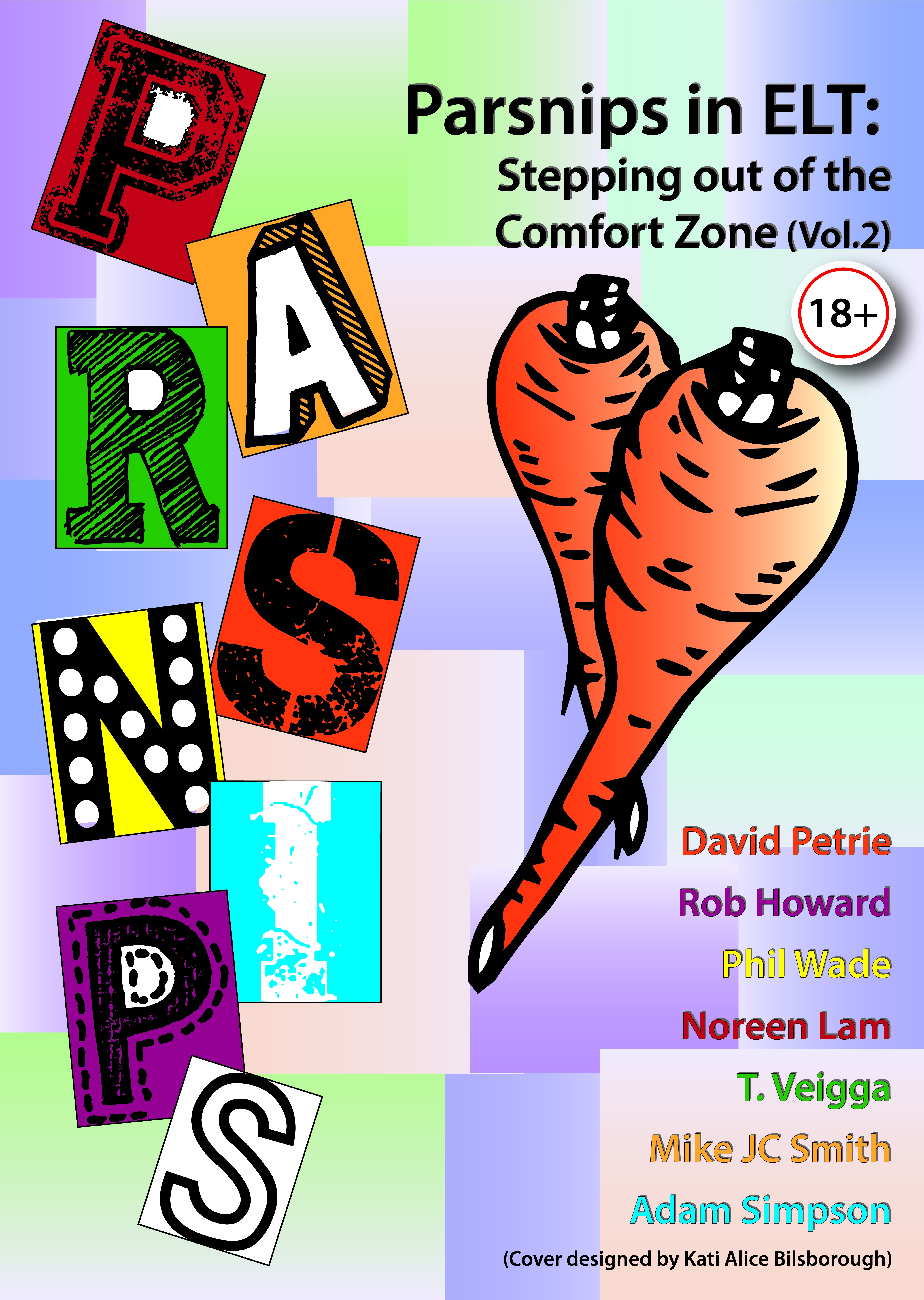Having been in the business of English teaching for 12 years now,  you can imagine how often I see and hear the word fluency. Everyone wants it, everyone promises it, but can everyone really achieve it? Is everyone able to reach the level of language competence that is thought to be fluency? Is every school, course, online SKYPE teacher able to provide the means to reach it?
you can imagine how often I see and hear the word fluency. Everyone wants it, everyone promises it, but can everyone really achieve it? Is everyone able to reach the level of language competence that is thought to be fluency? Is every school, course, online SKYPE teacher able to provide the means to reach it?
No, no and no.
Now, how could a teacher say such a thing? Three reasons.
1) Most students don’t really know what fluency is.
2) Fluency can’t be taught.
3) Not everyone can achieve a goal without the proper actions.
First, fluency is not the ability to speak perfectly, without any hesitation, with a native accent, flawless articulation, intonation, delivery and elocution. It is not knowing every word in the dictionary. It is not being able to understand every line from every article, book, TV show and movie. Perfection and fluency are two different things. Native speakers hesitate. Native speakers make mistakes. Native speakers have many different accents and styles of delivery and intonation. As I am American and speak differently than a British speaker, am I less fluent than them or vice versa? Of course not.
So what is fluency?
Simple. Fluency is achieving a level of competence in communication where one can communicate with relative ease in any situation. It is the ability to understand, be understood and, if not, being able to find a way to facilitate understanding. Plain and simple. Do you need to understand everything? No. If every native speaker understood every word, we wouldn’t need dictionaries. There are so many different accents, regional dialects, regional slangs that I dare say, if fluency is knowing it all, there isn’t a fluent person on this planet.
What most students think fluency is, is actually a level that many might never achieve. Read that again. I didn’t say that it couldn’t be achieved. If you do extensive reading about what the experts say fluency is, you will find a myriad of different opinions. If teachers and experts can’t agree, how can a student know what it is? What students should be aiming for is to enjoy speaking the language and reaching the level of ability that fits their own personal goals. If it is to communicate while on vacation, great. If it is for work, more is needed. If it is to write academically, another level is needed. Reach for your level and then try and surpass it if you want. Forget the word fluency.
Some examples
While watching an episode of “Two and a Half Men”, a character made reference to Buster Brown. Now, I am old so I know that Buster Brown was a comic book character from 1902 which was later used as a mascot for a shoe company until the mid-1960’s I believe. The basic and inexpensive style of shoe was what the TV character was referring to in the show. My 29 year-old American son had no clue what they were talking about. Is he less fluent than I? No, it was merely a reference based on historic culture and not a language issue. So imagine a second language learner. How would they know this? Was it really necessary to understand it to enjoy the show?
At my cousin’s wedding years ago, I actually had to act as translator between a native New Yorker and a native Tennessean as neither one could understand each other’s accent. Both were well educated speakers.
I recently watched a webinar from India in English and I, someone quite familiar with their accent, had a lot of trouble understanding them. I wish they had subtitles. Yet, we are all “fluent”.
I lived many years in Rhode Island, one hour south of Boston, where I grew up. In Boston, we call a milkshake, a “frappe” which has become more popular thanks to Starbuck’s Frappuccino. In Rhode Island, it is called a “cabinet”. Try and order a cabinet outside of Rhode Island and you will be directed to Home Depot. Rhode Island, although the smallest state in the US, has such a diverse local dialect as demonstrated on the animated show “The Family Guy”. It is fraught with localisms that I am sure most can’t understand. Is this a fluency fail?
I lost 10 pounds learning English
Let’s compare language fluency to weight loss. If one goes to Weight Watchers, a popular weight loss group, listens to the advice and steps to lose weight, will one lose weight? No. If you follow the advice of diet and exercise that they teach, then, and only then will you have the chance to. Some businesses use the phrase “fast fluency” like diet pills use the phrase “quick weight loss”. Read the fine print though. They almost all say “best results achieved when combined with proper diet and exercise”.
The same with language classes. The teacher teaches the steps to communication, the rules, the structures and the like. But when you leave the classroom and don’t use the language, how can you improve? Like losing weight, you need a proper “diet” of language input and “exercise” using the language outside of the classroom. This is where most students fail. They think that a few hours sitting with a teacher and talking for a few minutes is enough. Not by a long shot. You don’t build muscles sitting on your behind. Join a conversation group, find other speakers and learners and use the language as much and as often as you can. World-class athletes, musicians, artists etc. didn’t achieve their goals by sitting on their butt. They got out there and used and developed their skills.
Can you reach fluency?
This is the rub. Just check out your local language course or Google online courses and teachers. You’ll see the word fluency everywhere. Almost every course will make you fluent with ease. We have magic pills that make you learn. Courses use this word because it is what people think they must attain. It’s the buzzword for language learning. A popular native speaker on the internet touts “fluency in any language in 3 months”. What does he offer for advice? One is to not speak their “mother tongue” at all. He’s right… if you are in another country. What if you are in your home country? Fail. Don’t get me wrong, he has many good ideas and points but even he infers that it can’t be done, yet, he still boasts fluency in 3 months. It’s a business. Remember that. We teachers, like you at your job, are here to make a living. If I or a colleague told you it would take you 2, 5 or 10 years to become “perfect”, would you take our course? Maybe you should.
Can you teach fluency?
Fluency has not, cannot and will not be taught in a classroom or by a teacher. The steps to reach fluency, however, can and should be taught. The classroom, like a personal trainer, is to set the guidelines, to give you the tools, to correct and hone the skills. But it isn’t anywhere close to being all that students need.
What should one do?
Try, experiment, speak, make mistakes, use the language and communicate. Like anything, the more you do something the better you will be at it. Have fun. Reach your level of enjoyment. Do you have to be the fastest runner in the world to enjoy running? No. Must you be the best surgeon to be a competent doctor? No. Should you try to improve? Sure, if you feel you want to go further. Are you happy with your level? Be happy.
What can one do?
Should you choose to improve, there are many ways out there. First and foremost, find a professional course or a professional teacher that can help you with the basics, your doubts and your mistakes. The old adage “you get what you pay for” applies here. There are a million “language teachers” on the internet that have no command of the language and no professional training to teach that will take your money. Sure, some may be good and will help just as there are many great cheap restaurants with cooks that didn’t study at the Cordon Bleu yet serve wonderful meals. I myself was a speaker who learned to teach. I know many wonderful teachers who learned to speak. Both are fine if they are competent and meet your needs. Do a little research first though. You will find that many of them just think that because they think they can speak, they can teach. Some of them are actually my ex-intermediate-level students or people that went abroad for a month or two making them qualified.
Don’t just rely on a big name company either. Many of these hire people whose only qualification is that they speak and can complete a 2-hour “training course” before being thrown online. There are unfortunately quite a few courses out there from big corporations like this.
Next, seek out other learners or even competent speakers to start speaking with. Read for vocabulary. Watch TV and movies and YouTube videos. Learn, speak, learn more and speak more. Courses alone are not enough.
Using the language builds momentum, momentum yields improvement, improvement builds confidence, confidence adds to usage. This is the loop you want to be in.
Want to read more?
I hope this will spark you to want to learn and improve. Over the past months, we have offered up many ideas and resources to help you achieve your language goals. Search through our posts.
I was also fortunate and honored to be part of an article by Jason R. Levine entitled “34 Experts Offer Their Tips for English Fluency”. You will see that we all have varied and valid ideas for people to improve. Take a look at the great graphic at the end for more ideas.
Yes, fluency, whatever it is, can be achieved – just like you can lose those last 10 pounds. But until we invent a pill, a chip or a surgical procedure that can do it overnight, stay the course and put in the work and the time. You can, and will, reach your own desired level of “perfection”.
Your turn
As learners, you are experts too. Post your comments and advice here. What have you done or what are you doing to reach your desired level?
THIS POST HAS BEEN SHORTLISTED FOR THE BRITISH COUNCIL BLOG OF THE MONTH
 Rob Howard is the owner of Online Language Center. He is a teacher, tutor, trainer, material designer and author for English as a foreign language. He is also a consultant and has been a frequent speaker internationally regarding online retention as well as using technology in and out of the classroom. He is also the founder of EFLtalks, talks for teachers. Originally from Boston, Massachusetts in the U.S., he is currently residing in Rio de Janeiro, Brazil. You may e-mail him at rob@onlinelanguagecenter.com.
Rob Howard is the owner of Online Language Center. He is a teacher, tutor, trainer, material designer and author for English as a foreign language. He is also a consultant and has been a frequent speaker internationally regarding online retention as well as using technology in and out of the classroom. He is also the founder of EFLtalks, talks for teachers. Originally from Boston, Massachusetts in the U.S., he is currently residing in Rio de Janeiro, Brazil. You may e-mail him at rob@onlinelanguagecenter.com.










Thanks for the interesting article, Rob. I’m learning Italian and I experience the same inner resistance to practising the language outside lessons that many of my students also experience. It’s hard work. Ultimately, you can learn lots of theory but there’s no way you can get better at swimming unless you try swimming.
LikeLiked by 1 person
Thanks Michael. I learned this when I moved to Brazil. You won’t improve until you start. In bocca al lupo!
LikeLiked by 1 person
Hi Rob! I’m not a native speaker, but as for me, fluency simply means being able to express yourself clearly in any given topic or situation. If we equate this to perfection, then I believe it can never be achieved. However, for non-native speaker of English, this is such a very difficult task to do. Yes, teachers can lead the students the way or give a “magic formula” if it does exist, however, it still depends on how much effort the learners give in order to achieve this goal.
LikeLike
I´m learned and I think that you have much reason..we need to try ever be better, Thanks for you advices.
LikeLike
Hi Rob,
Just to let you know that we’ve shortlisted this blog post for this month’s TeachingEnglish blog award and I’ll be putting up a post about it on today’s TeachingEnglish Facebook page http://www.facebook.com/TeachingEnglish.BritishCouncil, if you’d like to check there for likes and comments.
Best,
Ann
LikeLike
Thanks Ann. I am honored to be considered.
LikeLike
good one 🙂
LikeLike
I couldn´t agree more!!
LikeLike